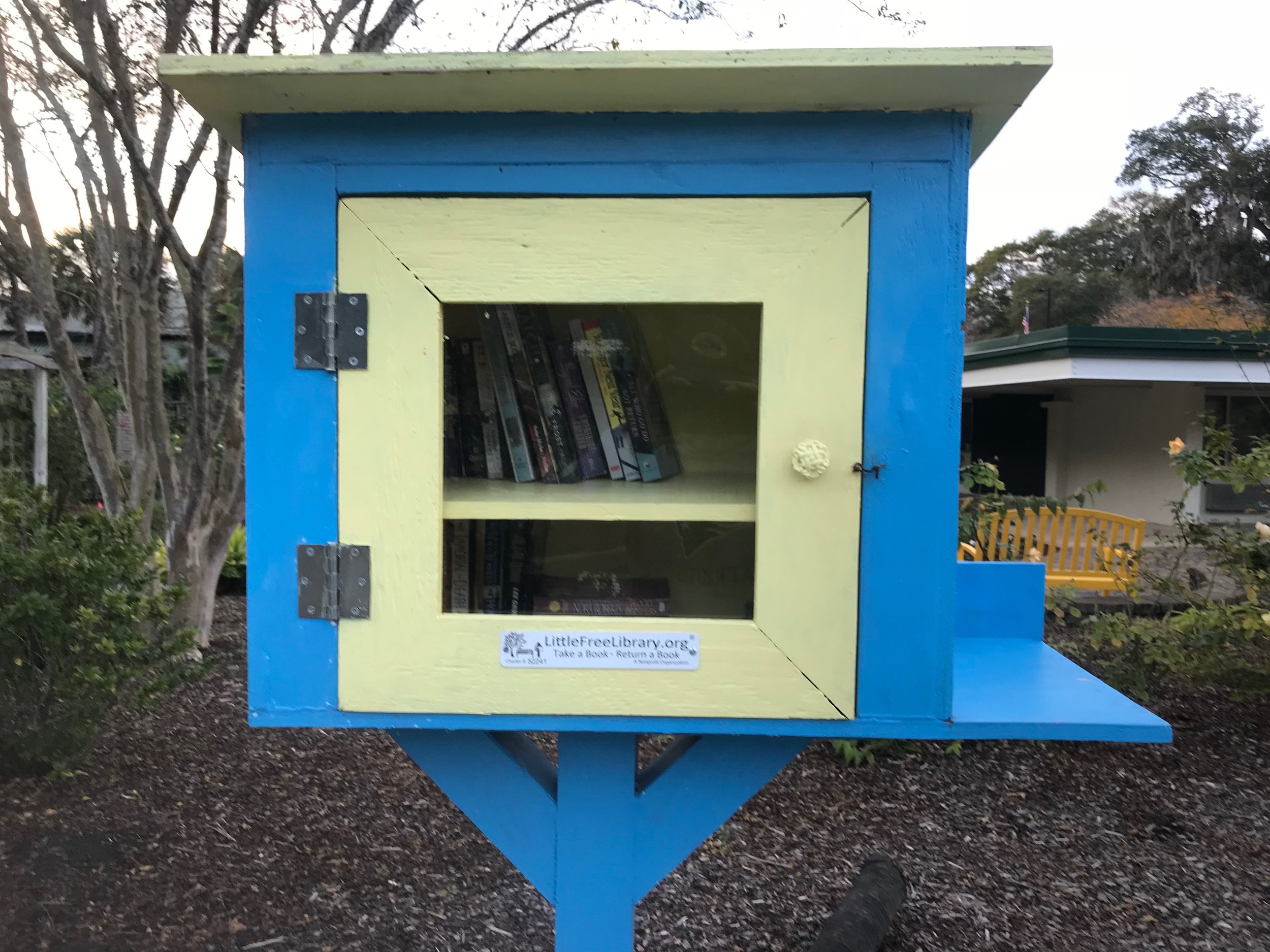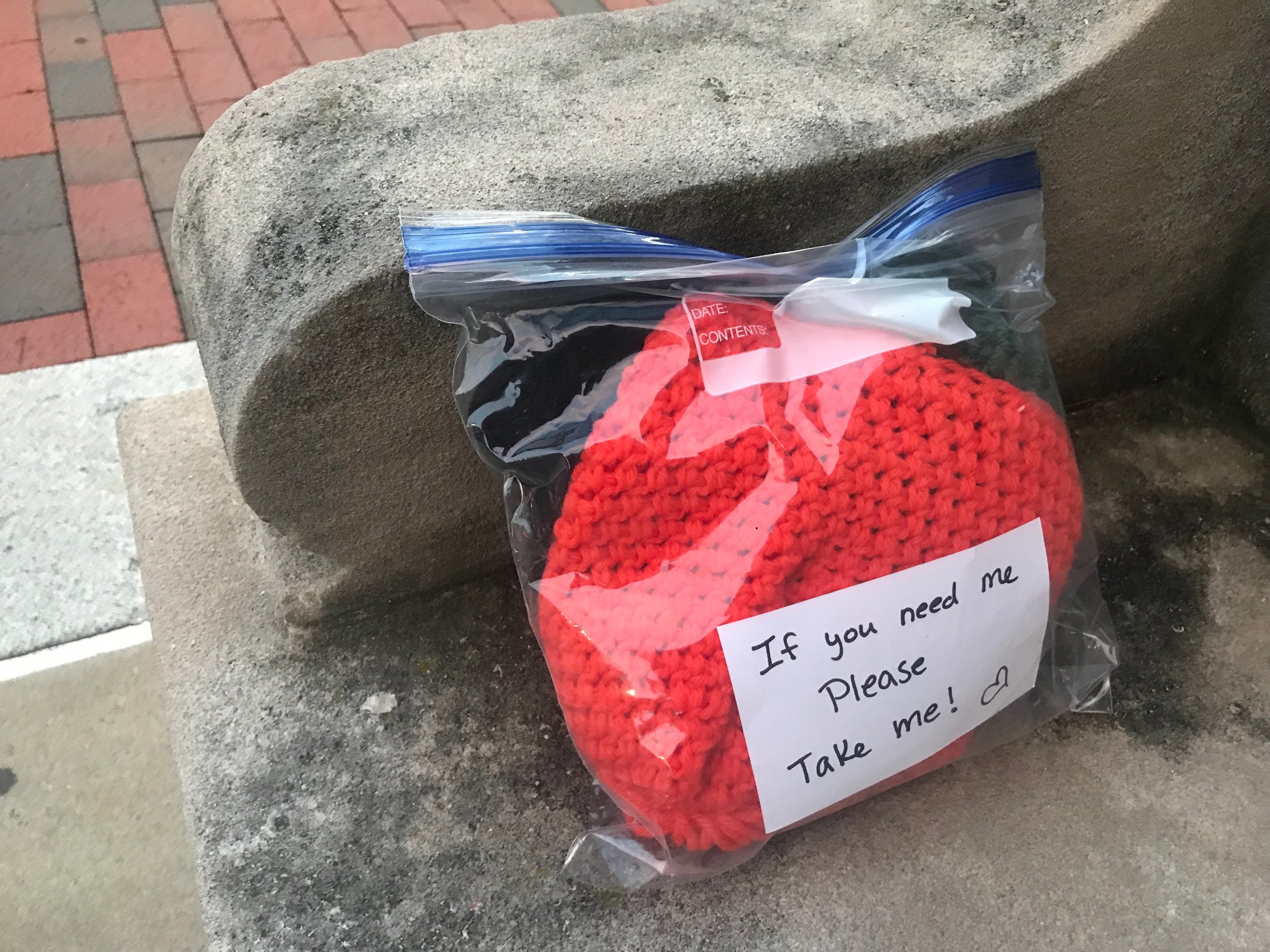



Finding hope along the road
By Rick Holmes
Dec. 22, 2017
I’ve spent most of the last 10 months wandering around the country, considering the current state of our disunion, and the things that really make America great.
My wife and I traded in our empty nest for a pickup and a 24-foot travel trailer. We’ve traveled from Low-Country Georgia to the deep woods of northern Maine, from the mountains of Montana to the streets of New Orleans. The scenery has been spectacular, the history lessons fascinating.
Going mobile no longer means going unplugged. Like many of us, I’ve spent the last year distracted and dispirited by newspaper headlines and screeching bulletins beamed to my phone. In the headlines and noise, I’ve found enough bad news to keep me – like lots of other people – in a state of near-panic. But on the road, I’ve found reasons for hope.
Consider the tiny libraries I’ve found sprouting by the side of the road. I’ve seen them on dirt roads in Vermont and in dense neighborhoods of Washington DC, in Virginia’s Shenandoah Valley and in city parks in North Carolina. They are brightly-painted boxes with glass doors. Inside are shelves holding books for adults and children. Help yourself.
Each Little Free Library is different, from the first, in Wisconsin, designed after a schoolhouse, to the one I saw on Capitol Hill that sports a nautical theme and has a small patch of grass growing on its roof. They operate on the “take a book, leave a book” system long used in campgrounds and summer rentals.
These new libraries build literacy, especially among children. Books are expensive. Budgets for schools and traditional libraries are always tight. But last year’s best-seller or that well-loved copy of “Goodnight Moon” in the box at the end of the road is free.
But these libraries do something more. They encourage volunteerism, creativity and stewardship, since people who design and build things on their own tend to take care of them. With no bureaucracy and minimal expense involved, they reward individual initiative and strengthen local social networks. It’s community-building in a box. What could be more neighborly than sharing a good book?
Public libraries have always been one of America’s noblest inventions. Ben Franklin founded the first subscription library in 1731. Billionaire industrialist Andrew Carnegie founded some 3,000 libraries. That’s small change: More than 50,000 Little Free Libraries have registered with littlefreelibraries.org., the non-profit behind the effort, since 2012.
I’ve seen other signs that while Washington struggles, our communities are strong.
Everywhere I’ve gone, I’ve found people working together to help those who need help. In Winchester, Va., with the cold weather coming on, someone knitted wool hats and mittens and left them bagged in parks where homeless people are known to gather. “If you need me, please take me!” the bags say.
Every church bulletin shows members of a community taking care of their own, and reaching out to help those less fortunate. Every local newspaper carries stories of neighbors helping neighbors, of charity drives for families facing hard times, of volunteers coming together to solve problems.
Civic engagement, the hallmark of the American character first noted by Alexis de Toqueville in 1835, is still alive, and people feel it. An AP-NORC poll reported this month that, while just 30 percent think the country is on the right track, at least half feel optimistic about their local community.
Engagement in politics is growing as well, from the bottom to the top of the food chain. Officials report a surge in new candidates running for local offices. Special elections, even for city council and state rep seats, are getting national attention. Given the chance, people are voting in higher-than-expected numbers. That’s community in a box as well: a ballot box.
And people have been taking to the streets, starting with the back-to-back gatherings last January to celebrate or protest the Trump inauguration. From large Black Lives Matter marches to the smaller save-the-Confederate-statues marches, Americans are making their opinions heard.
I stood in line with thousands of cheerful Trump supporters who waited hours to see their president in Nashville. I marched across the Edmund Pettus Bridge in Selma with thousands of smiling citizens who share a far different political perspective. All of them care deeply about their country and demand a voice in its future. They will have it.
Americans’ divisions are painfully clear - on TV, online and in the election results. But when we see each other face to face, we recognize the things we have in common, and we understand that we’re all in this together.
My journey isn’t over yet, and neither is America’s.
Rick Holmes can be reached at rick@rickholmes.net. You can follow his journey at www.rickholmes.net. Like him on Facebook at Holmes & Co, on follow him on Twitter @HolmesAndCo.